FORT KNOX, KENTUCKY
Mac felt as if she were having an out-of-body experience as she followed Sanders into the room where her court-martial would be held. It was large, but a good deal more spartan than the courtrooms that she’d seen on TV.
As Mac walked down the center aisle, she saw that the spectator seats were full and knew why. WAR HERO FACES COURT-MARTIAL. That was the headline over a story penned by Beth Morgan two days earlier. Farther down, in paragraph five, mention had been made of what Morgan described as “the special relationship between Captain Macintyre and President Sloan.”
There was no relationship other than the fact that Mac had been in command of the column that rescued Sloan’s ill-fated force from Richton, Mississippi. But Morgan’s story seemed to hint at something else—and her peers had been quick to seize on it. As a result, a routine disciplinary process, which would normally be of no interest to anyone outside the army, had become a cause célèbre. And as Mac passed the reporter, Morgan smiled broadly. The meaning was clear: “I can’t have him, but neither will you.”
A table for use by the defense attorney and the accused was located to the left of the central passageway—while the prosecutor and her assistant were on the right. The judge’s chair was located on a riser directly in front of the other participants, with the witness stand to the left, and the five-member “forum” on the right. Thanks to Sanders’s efforts, two members of the jury were female, three had seen combat, and all of them were officers.
As Mac sat down, she knew that everyone in the room was staring at her, and she felt an overwhelming sense of shame. Like most military personnel, Mac placed a high value on organizational integrity. So to sit there accused of disobedience, knowing that she was guilty, was the most humiliating moment of her life. All she could do was hide her trembling hands under the table and stare straight ahead.
Ten seemingly interminable minutes passed before the judge, a colonel named Elmore Apitz, entered the room. Everyone stood as Apitz took his seat, and the court-martial began. Mac experienced a sense of disassociation as the attorneys for both sides made their opening statements. Their words merged into a meaningless drone. Everyone, Mac included, knew what the verdict was going to be. The only question was the nature of the punishment. Would the officers of the forum give her a slap on the wrist? Or would they drop a bomb on her? All Mac could do was wait to find out.
Once the opening statements were over, the prosecutor made her case. And for the first time since meeting him in Idaho, Mac had a chance to see Major Fitch. The uniform fit him like a glove, rows of ribbons decorated his chest, and he was every inch an air force officer.
But Fitch looked even more gaunt now—and his eyes were like chips of obsidian. When questioned, he spoke like a regretful teacher referencing an errant child. “Captain Macintyre’s intentions may have been good,” he allowed. “But military discipline is the backbone of the armed forces and requires that we obey those placed over us. Captain Macintyre put her desires before the needs of the country. It’s as simple as that.”
But no, it wasn’t as simple as that. Not according to Sanders, who put Dr. Hoskins on the stand. It was good to see the navy officer again, and his presence gave Mac reason to hope.
“So, Doctor,” Sanders said, once Hoskins had been sworn in, “you were present when Captain Macintyre and Major Fitch met. Is that correct?”
“Yes,” Hoskins replied. “It is.”
“And you could see both parties? And hear what was said?”
“Yes, I could.”
“Please describe Major Fitch’s manner.”
“The major was suspicious and aggressive,” Hoskins replied.
“Objection,” the prosecutor interjected. “The doctor had no way to know what was going on inside the major’s head. Appearances can be, and often are, deceiving.”
“All of us are aware that nonverbal communication can be very effective,” Sanders countered. “The doctor is a trained observer who is reporting on the way Major Fitch presented himself and could reasonably be perceived by Captain Macintyre.”
“You may proceed,” Judge Apitz said.
Sanders turned to Hoskins. “What else did you observe, Doctor? Was the major armed? And if so, with what?”
“He was,” Hoskins confirmed. “The major was carrying a light machine gun. It was pointed at the sky, but could have been dropped into firing position very quickly. That, combined with his caustic manner, caused me to believe that he was hostile.”
And so it went. The prosecutor put Fitch back on the stand to explain why he had reason to be suspicious of Mac’s unit, and any unit that happened along, given the overall circumstances.
Sanders introduced evidence that Fitch had been suffering from PTSD at the time. And the prosecutor countered with an expert who maintained that the diagnosis didn’t matter unless the major had been found unfit for duty prior to the encounter in Idaho.
Mac sat immobile throughout. She’d never been so helpless, and a supreme effort was required just to keep her head up. And even though she’d been in at least a dozen battles, and always found the courage to keep going, a feeling of hopelessness rose to consume her.
Hours dragged by. Summary statements were made, the case was given to the forum, and they left the room to deliberate. Everyone else was dismissed but given orders to remain on call in case the jurors came back with a verdict. “They won’t reach a decision today,” Sanders predicted. “We gave them a lot to think about.”
Mac hoped that was true. And, in keeping with the attorney’s prediction, the forum was still deliberating when 1700 rolled around and Mac was allowed to return to the BOQ. A gaggle of reporters and photographers was waiting outside. “Captain Macintyre! When did you last speak with the president? And what did he say?”
“How ’bout it, Captain…” a woman shouted. “ Are you having an affair with the president?”
“Is it true that you’re pregnant?” a man demanded. “And if so, who’s the father?”
Mac pushed her way through the crowd and hurried away. The press would have been able to follow her if she’d been off base. But not on Fort Knox, where the reporters’ movements were restricted. That meant Mac could turn a corner and escape.
Mac walked and kept walking. She’d been holding the tears back all day. Now, as they rolled down her cheeks, she wiped them away. A sergeant saluted, and she responded. It was, Mac knew, one of the last such courtesies she would receive. More than that, it was her last night of freedom. How did other people handle that? Did they get drunk with friends? Did they eat their favorite foods? Or did they curl up in the fetal position and sob? Mac hoped to avoid the third option. Be tough, she told herself. Woman up.
There were a number of places to eat on base, and Mac chose the largest and most crowded chow hall, hoping to go unnoticed. And the strategy was successful as far as she could tell. Because if people were talking about her, they were hiding it well.
Mac didn’t have much of an appetite, though… And at least half of the chicken salad remained on the plate when she turned her tray in.
It was dark outside, and a heavy sleet was falling as she made her way to the BOQ. Once in her room, Mac found that a message was waiting. For the first time since returning to Fort Knox, she was to report to base’s security center in person.
Mac smiled grimly. Of course… The evening before the verdict. The night when she might decide to run. The next hour was spent trudging over to security, checking in, and walking back. It was about 1930 by the time she put her coat away, turned the TV on, and began to pack. The instructions from Sanders were explicit. “If a verdict comes in tomorrow, and if you’re found guilty, the MPs will take you to the stockade. At that point, they will dispatch someone to get your belongings. So make sure that everything is packed and ready to go.”
Читать дальше
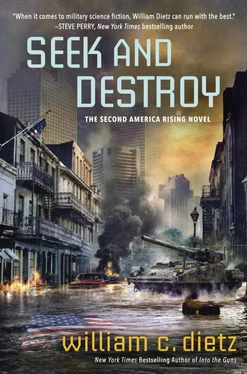
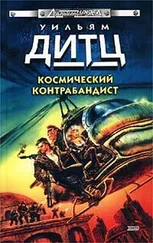
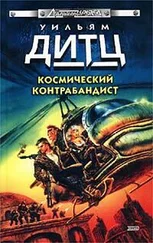
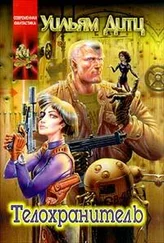
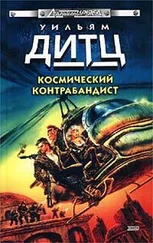
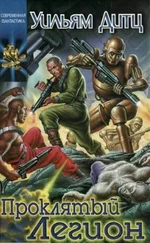
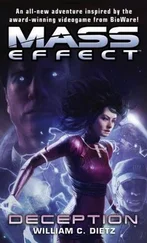

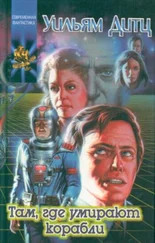
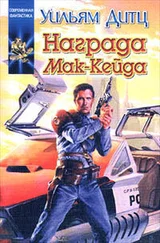
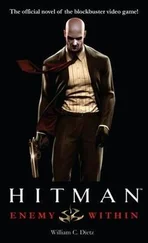
![Уильям Дитц - Избранные произведения в одном томе [Компиляция]](/books/389750/uilyam-ditc-izbrannye-proizvedeniya-v-odnom-tome-k-thumb.webp)
